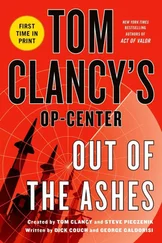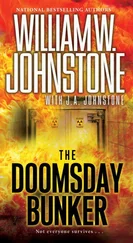They had smiled and waved at Jerre. They had flatly ignored Ben.
When Jerre was gone from his sight, Ben turned on the battery-operated lantern and picked up the note she had left.
Dear Ben,
I’ll make this short, ‘cause if I try to write too much I’ll just tear it up and stay with you, and I think that would be bad for both of us—at this time. Maybe what I’m doing is foolish. I don’t know. But I feel it’s something I have to do. The world is in such a mess, I have to try to do something to help fix it. Maybe the young can. I don’t know. In my heart I kind of doubt it, but we have to try—right?
The mood I get from the kids I’ve talked with is they blame the adults for the mess we’re in. I don’t think that is entirely fair, personally. You’re a good man, and there must be others like you. But give us a chance, huh?
I don’t know what my feelings are toward you, Ben. I like you a whole lot and I think I probably love you a little bit. That’s a joke—I think I probably love you a whole lot. That’s one of the reasons I’ve got to split. There are other reasons, of course, but my feelings toward you are right up there at the top.
You’ve got places to go and things to do before you find yourself—your goal, preset, I believe—and start to do great things. And you will, Ben. You will.
I hope I see you again, General.
Jerre
Ben carefully folded the note and put it in a waterproof pouch where he carried other precious, silent memories: a picture of his mother and father, his brothers and sisters, a girl he had once loved. And now, Jerre. He put in the pictures of Jerre with her note and closed the flap, securing it.
He sat on the edge of the bed for a time, the scent of her still in the air, on the pillowcase, the sheets.
“Good-by, Jerre,” Ben said aloud.
He packed his gear and pulled out. Had he turned north, instead of south, he would have found her sitting at the side of the road, crying, looking down the empty road. Looking south.
Ben was maudlin for a time, his thoughts moody, filled with regret and self-pity. But as he drove, his mood began to lift as he realized Jerre had been right in her young wisdom: she needed to be with her own kind, her own age—at least for a time. He wished the young people well, but did not believe they would accomplish a thing. Except to get themselves killed. Back in 1960, when Ben was sixteen years old, he had believed in Camelot. But the years of combat and of seeing the mute silence of the dead and the screaming of the wounded and the starvation of the peoples in parts of Africa had convinced him that only the toughest survive—there is not, there was not such a place as Camelot.
But, he thought, forcing a grin, let the young people try; maybe they can build a better world from out of the ashes. God knows the last two generations sure fucked this one up.
He drove down to Sanford and angled over until he linked up with the interstate. The on-ramp was blocked, so Ben dropped the truck into four-wheel drive and drove until he found a place where he believed he could get on the highway. He drove down to Dillon and there he spent the rest of the day practicing with the M-10 and getting the feel of the 9-mm pistol. Ben concluded the little SMG did not have the knockdown power of the heavy old Thompson, or the range, but it was lighter and easier to handle. He elected to stay with it.
The barrel extension/silencer increased the range a few yards—about sixty-five yards max—and made the weapon easier to control, for the padded extension/silencer served much as a rifle fore-end. Without it, the Ingram made a hell of a racket. Even with it, it sounded like a fast-quacking duck with a speech impediment.
Ben fixed his dinner and turned in. His dreams were intense, waking him several times. They were mixed—about his parents, his brothers and sisters, Fran, and always, Jerre. And the dream of a free land, run by the people, always intermingled with the others. The Rebels, leaderless… waiting.
At first light, he drove over to Shaw Air Force Base, thinking surely, of all places, there would be life here; a military organized disciplined order to things.
No one challenged him at the main gate. The door to the sentry hut banged and slammed in the wind; the lock was broken.
The base was eerily silent, but there were no bodies to be seen. Ben drove around the huge complex, stopping at random to check buildings and barracks. Nothing. Finally, in a service club, Ben found four men playing cards. A general, a captain, and two sergeants. They did not seem at all surprised to see him. They tossed the deck of cards on the table, shook hands and introduced themselves, and invited Ben to sit down, have a drink. Booze was free.
Drink in front of him, with the first ice Ben had seen since leaving Louisiana, he asked, “Is this it?”
“Meaning all the life on this base?” the general asked. “Yep. What you see is what you get.”
Ben told him what he was doing, attempting to do.
“Very admirable of you,” the captain said. “But who in the hell is going to read it?”
“There are a number of people still alive,” Ben told him. “Probably a lot more than we realize.”
“Oh, sure,” the general said. “I figure maybe… oh… twenty to thirty million here in the States. Hell, me and Jake here”—he jerked his thumb toward the captain—“have flown all over the States during the past six weeks or so—been in voice contact with hundreds of people. You know the Rebels are looking for you?”
Ben nodded. “So I’ve heard.”
“Don’t want to be their commander, huh?”
Ben hesitated. “I… don’t know.”
“You must be something special for the Bull to put you in charge of the whole shebang.” Ben said nothing. The general grunted. “You know, probably, that when the military gets it all together—take another ninety to one hundred twenty days—that craphead Logan will be named president.”
“So I heard. I can’t think of anything more appalling for the country.”
“I agree.”
“Then…?” Ben looked at the general.
“Why Logan? Hell, it’s a joke, Raines. An ugly, profane joke. He’s the only one left, we think. He ran like a scared rabbit and ducked into a hole. The others went up with Washington and the suburbs. I flew over what’s left of our great boondoggle. It’s awesome, boy, awesome.”
“Oh, come on, General! There has to be another senator or representative around… somewhere!”
“Oh, sure. Of course. Let’s see.” He smiled, beginning a count on his fingers. “We’ve got that young fellow from Iowa—”
“Senator Billing,” Ben said. “First-termer. O.K., General, I get the point. Logan is senior.”
“That’s it. All the secretaries are gone. Every last one of them.”
“Supreme Court?” Ben asked.
“All gone… as far as we know. They can’t be found.”
“General,”—Ben leaned forward—“one of you people take over; don’t give it to Logan.”
The general shook his head. “No way, Raines. No way. And we talked it over. There’s… twenty-six generals and four admirals who came out of it alive—all branches of the service. And that includes retirees. Hell, we’ve got one so old he really thinks he’s on Corregidor, waiting for MacArthur to return. No one has the heart to tell him that was almost fifty years ago. I was two years old! No way, Raines.” The general smiled. “Besides, way I heard it, Logan has a plan for the U.S. to come out on top after this tragedy.”
“Let me guess, General.” Ben’s tone was icy.
“I figured you’d want a shot at it, boy.”
Ben resisted an urge to tell the general he was no “boy.” The general, at most, was about six years older than Ben. But rank has a way of doing that to some men.
Читать дальше












